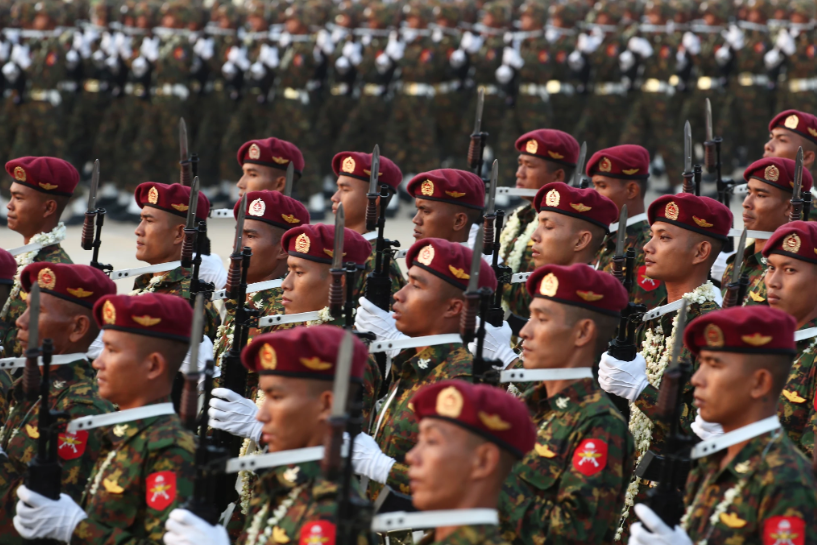Myanmar’s military government made a surprising move on Wednesday, announcing its intention to draft 60,000 young men and women annually for military service under its newly activated conscription law. The call-ups are set to begin after the April festival marking the country’s traditional New Year.
This decision, ordered by Senior Gen. Min Aung Hlaing, the chairman of the ruling military council, comes amidst increasing pressure from armed pro-democracy resistance forces that emerged after the army seized power from the elected government of Aung San Suu Kyi in February 2021.
Estimates of the size of Myanmar’s military vary widely, with the CIA World Factbook suggesting it had between 150,000 to 400,000 personnel last year. The U.S. Institute of Peace has suggested that around 21,000 service personnel have been lost through casualties, desertions, and defections since the military takeover, leaving an effective force of about 150,000.
Under the new law, men aged 18 to 35 and women aged 18 to 27 can be drafted for two years of service. Exceptions are made for certain professional categories, such as medical doctors and engineers, who have a higher age limit of 45 for men and 35 for women, with a term of service of three years.
The army’s information office stated that 5,000 people would be called up monthly for training, with women joining starting from the fifth batch.
Maj. Gen. Zaw Min Tun, spokesperson for the military government, revealed that approximately 14 million people—6.3 million men and 7.7 million women—of the country’s population of 56 million are eligible for military service. He indicated that the initial batch of 5,000 conscripts would be called up shortly after the traditional Thingyan New Year celebration in mid-April.
The activation of the conscription law has stirred fear, anxiety, and defiance among young people and their parents, as evidenced by social media posts and private conversations. Some individuals are contemplating leaving the country, seeking refuge in border areas controlled by ethnic minorities, or joining resistance groups.
Evading conscription carries a penalty of three to five years in prison and a fine. Religious order members are exempt, while civil servants and students can be granted temporary deferments.
Additionally, the military government has activated a Reserve Forces Law, which mandates that army veterans serve an additional five years after their resignation or retirement.
In response to the conscription law, Myanmar’s shadow National Unity Government (NUG), the leading political body of the resistance, declared in a statement that the public is not obliged to comply, deeming the announcement unlawful. The NUG urged people to intensify their participation in the revolution, asserting its claim as the country’s legitimate government.
“It is clear that the military junta, having suffered significant and humiliating defeats across the country, is desperate,” the NUG’s statement said. “It now seeks to force Myanmar civilians to fight and to serve as human shields in a horrific war of its own making against its own people.”
(Source: Reuters | PBS | BBC)









